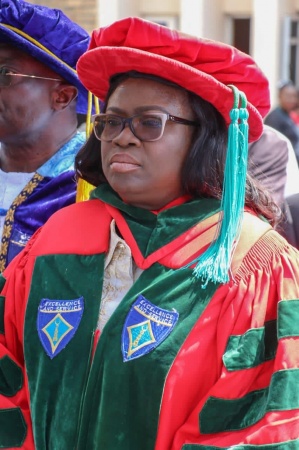Reps investigate new JAMB 120 cut-off mark
Posted by Factnews | 7 years ago | 2,038 times

The House of Representatives, on Tuesday, mandated the Committee on Tertiary Education and Services to investigate the circumstances that led to the reduction in the cut-off marks required for admissions of candidates into tertiary institutions, the Joint Admissions and Matriculation Board (JAMB).
The committee was given four weeks to report back to the House for further legislative action.
According to Tribune, the House resolution followed a motion sponsored by Honourable Hassan Saleh, entitled: “Need to investigate the reduction in the cut-off marks for admissions into tertiary institutions in Nigeria.”
While moving the motion, Honourable Saleh said “on August 22, the Registrar of the JAMB, the heads of tertiary institutions and other stakeholders held a policy meeting on plans and modalities for the conduct of admissions into tertiary institutions for the 2017/2018 academic session.
“After the said meeting, the Registrar of JAMB, Professor Ishaq Oloyede, announced that a minimum of 120 marks in the Unified Tertiary Matriculation Examination (UTME) would be required for placement of candidates into the Universities, while 100 marks would be required for placement into Polytechnics or Colleges of Education,” he said.
He further stated that “despite the fact that more than 500,000 candidates scored above 200 marks which represents 50 per cent of the total mark, the JAMB still went ahead to announce a 120 cut-off mark which represents only 30 per cent of the total examination mark of 400, while 100 marks stipulated for polytechnics and colleges of education representing only 25 per cent of the total mark.”
Most of the lawmakers who contributed to the motion kicked against new cut-off mark by JAMB.
He added that the “decision is bound to lower the standard/quality of education in tertiary institutions, as many candidates who perform woefully in the UMTE examination could secure admissions through nepotism, bribery and corruption while many other candidates who perform excellently could be denied admission.
“Universities are supposed to be centres of excellence for learning, research and innovation, hence the need to always admit the best candidates in order to produce graduates that can compete favorably with their peers anywhere in the World.
“Tertiary education should be for those candidates who have the intellectual capacity, hence lowering the entry qualification into higher institutions of learning would definitely reduce the productivity and peak performance of young people seeking admissions into such institutions”, he maintained.
Readers Comments
comment(s)
No comments yet. Be the first to post comment.








